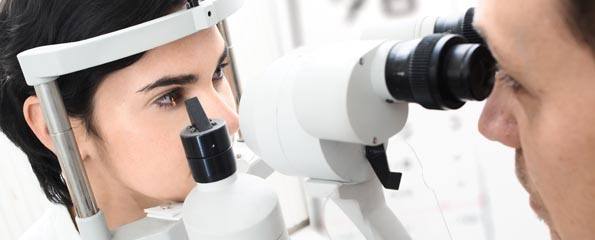If you’re going to be visiting an ophthalmologist for the first time, then you probably have several questions that you want to ask them.
One of the biggest concerns that you may have is simply the fear of not knowing what to expect.
They could tell you that everything is fine or they could diagnose you with an eye disorder of some sort; it could go either way.
To give yourself some confidence, there are several questions that you can ask them to get more understanding. Here are the questions that you should as an eye care specialist when you go in for the initial appointment.
- How Likely Is It That I Develop a Disorder?
This question should be prefaced by saying that there’s obviously a reason that you’ve scheduled the ophthalmologist appointment.
Maybe your usual eye doctor sent you there to learn more about your regressing eyesight.
Perhaps you are just wanting to learn more about whether or not there could be potential problems in the future.
To give yourself peace of mind, there’s nothing wrong with asking them the likelihood that you develop an eye disorder.
If the odds are high, then your ophthalmologist can give you different steps to try and alter your fate.
- What Tests Should I Expect?
One of the biggest concerns that you might have during this new appointment will be the different types of ophthalmic tests that you will undergo.
They might have you undertake a slit lamp test, a glaucoma test, a colorblindness test, or just a simple examination of your retina and pupils.
Whatever tests that they have you undergo, they’ll be sure to provide as much information on the process prior to performing it. If you have any other questions on the test itself, then you need only ask them before the test begins.
- Will You Send the Results to my Optometrist?
Obviously, if you do happen to have an eye disorder diagnosed during your ophthalmic appointment, then you’ll need to be properly treated for it.
Typically, if you’d like to fix the eye disorder that you’re diagnosed with, it will need to be through a surgery that will be performed by the ophthalmologist.
However, it’s important that both your optometrist and your primary physician are aware of the eye disorder you have and the treatment you’re getting for it.
Why? Because their office needs to keep a record of all the surgeries that you’ve had in order to best care for you. Be sure to ask the ophthalmologist’s office if they plan on sending results to your doctors or if you need to do so.
- How Often Should I Have an Eye Exam Performed?
Just because the ophthalmologist or optometrist doesn’t diagnose you with anything right now doesn’t mean it won’t happen at some point in your life.
In fact, in some severe cases (such as an eye disease), your eyesight can worsen in mere weeks.
For that reason, it’s important that you undergo a comprehensive eye exam and ophthalmic exam often enough. Especially if your family has a history of eye problems.
Be sure to ask your ophthalmologist how often they believe that you specifically should get your eyesight tested.
Remember, while they may not have found your eyesight poor enough to diagnose today, it doesn’t mean they didn’t find signs of regression.
- When Does the Treatment Begin?
Rest assured that even if you’re diagnosed with an eye disorder at your initial eye care specialist appointment, you won’t be undergoing any sort of treatment that day.
The first appointment is purely meant to assess your situation and see if there are any methods to help improve the problems you’re having.
If the ophthalmologist finds something that needs to be treated, they’ll inform you of the procedures or treatment processes that they’d recommend.
When they do, it’s important that you ask when you can expect the treatment process to begin. Depending on the severity of your eyesight, the eye care specialist might recommend doing it sooner rather than later.
- Is There a Possibility of My Eyesight Getting Worse?
This is the question that all patients want to know. Even if you have a disorder, will the eyesight continue to get worse or stay the same?
Every scenario is different, so don’t automatically assume that your vision will regress as soon as you’re diagnosed.
If the specialist tells you that it will regress slowly, then you might be able to hold off on treatment for a while. While the specialist can’t predict your vision loss, they can make an educated guess to help you decide on treatment.
- What Does the Schedule Look Like for Follow-Ups?
If you’re diagnosed with something, then a treatment process is going to eventually happen in order to cure your disorder.
That’s why it’s important to learn as much as you possibly can about the process before it happens.
How many follow-up appointments will there be after the surgery/treatment? What’s the timeframe between the different meetings? Will you have to undergo rehabilitation of any kind?
Ask These Questions for Your Eye Care Specialist Appointment
Now that you’ve seen several questions that you can ask your eye care specialist, be sure to ask them whenever you attend your next appointment.
The eye care specialist (ophthalmologist) will be happy to supply you with as much information as possible. They probably have packets they can hand you to learn more as well.
Be sure to browse our website for more health-related articles, as well as other valuable information.



















